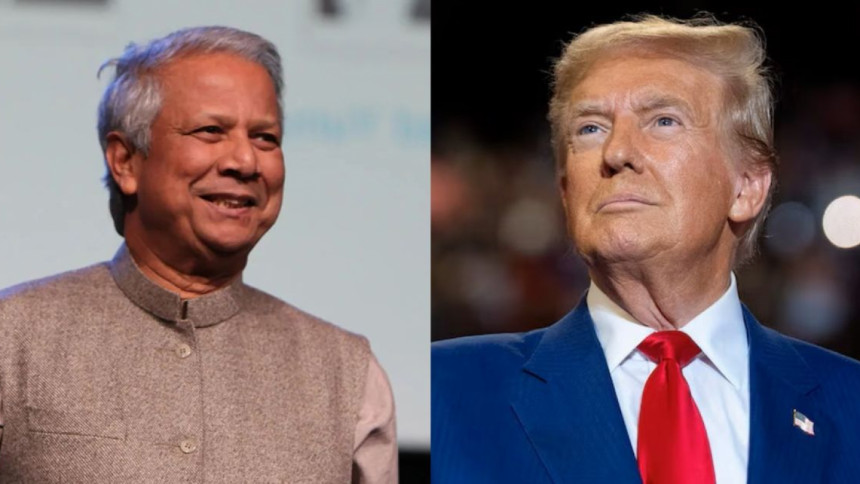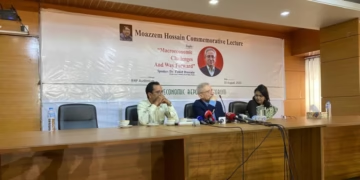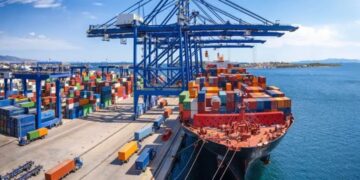Dr. Yunus Sends Letter to President Trump
On Monday, Dr. Muhammad Yunus, head advisor of Bangladesh’s interim government, sent a letter to US President Donald Trump. In the letter, he asked the US to delay the newly announced 37% extra import tariff on Bangladeshi products for three months.
Why Bangladesh is asking for more time
Dr. Yunus indicated that Bangladesh needs some time to increase imports from the United States and overhaul its tariff system. This will help to establish a fair and balanced commercial relationship between the two countries.
Bangladesh Wants to Import More US Products
Dr. Yunus told President Trump that after he became President, Bangladesh quickly sent a high-level representative to show interest in increasing imports from the US. He said Bangladesh, with its 170 million people and growing economy, is very interested in buying more American products.
Long-Term LNG Agreement with the US
Dr. Yunus also mentioned that Bangladesh was the first country to sign a long-term agreement to import liquefied natural gas (LNG) from the US. Since the US lifted the export ban on LNG, Bangladesh has been working closely with the US to expand LNG cooperation.

Growing Imports of US Agricultural Products
The letter also stated that Bangladesh has already started increasing imports of US farm goods like cotton, wheat, corn, and soybeans. These imports will benefit American farmers and support their income.
New Warehouse for US Goods
To help deliver US goods faster, Bangladesh is almost ready to open a special bonded warehouse. This warehouse will allow US products to enter Bangladesh duty-free, helping speed up trade.
Low Tariffs on US Goods
Dr. Yunus said that compared to other South Asian countries, Bangladesh charges the lowest tariffs on US exports. He added that Bangladesh is already working to reduce tariffs up to 50% on important US items like gas turbines, semiconductors, and medical equipment. Cotton, scrap metal, and farm items will be fully free of tariffs.
Read More: No Thanks: An App for detecting Israeli and boycotted products
Additional trade obstacles will be removed
Bangladesh is also seeking to lower non-tariff trade barriers. This includes simplifying packaging and labelling regulations, reducing testing requirements, streamlining customs procedures, and extending trade facilities.
Starlink, a US-based company, has expanded into Bangladesh
The letter stated that Starlink, a US-based internet provider, is now ready to operate in Bangladesh. This will open the door for more US investment in technology, aviation, and defence sectors.
Hope for Stronger Trade Ties
Dr. Yunus expressed hope that all these steps will be completed in the next three months. During this time, Bangladesh will continue working with US officials to strengthen trade and build a balanced relationship.
Final Request to the US
At the end of the letter, Dr. Yunus made a heartfelt request to President Trump: “Please consider delaying the extra tariffs on Bangladeshi exports for three months. I sincerely hope you will accept our request.”
A Strategic Move in Global Trade Diplomacy
This letter from Dr. Yunus reflects Bangladesh’s broader effort to reposition itself as a cooperative and responsible trade partner on the global stage. By proactively addressing tariff concerns and outlining concrete steps toward trade reform, Bangladesh is signalling its willingness to modernize and open up its markets. The country’s emphasis on mutual benefit, rather than confrontation, sets a diplomatic tone that may appeal to both US policymakers and international observers.
The Road Ahead: A Test of US-Bangladesh Relations
As Bangladesh awaits a response from the White House, all eyes are now on how the US administration will react to this formal appeal. If the US agrees to temporarily lift the tariff, it could mark a turning point in US-Bangladesh relations—fostering deeper economic ties and encouraging further American investment. On the other hand, a refusal could lead to trade friction and missed opportunities in one of South Asia’s fastest-growing markets.


















